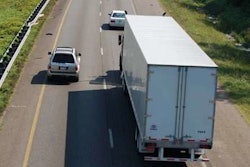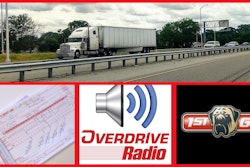Trucking news and briefs for Monday, March 7, 2022:
Texas carrier 'done with trucking,' owner said, after being shut down by crash, FMCSA
The Federal Motor Carrier Safety Administration has effectively shut down Houston-based Koboat Trucking following an accident in February that killed a Tennessee sheriff’s sergeant. Christopher Savannah, the driver for Koboat Trucking who was involved in the crash, was also shut down recently by FMCSA.
On February 3, 2022, Savannah crashed in Tennessee and killed a Sergeant from the Loudon County Sheriff’s Office. The driver ignored a rolling roadblock and crashed into two cars before killing the sergeant, who had stopped to remove a ladder obstructing the roadway.
According to FMCSA, Savannah did not have a CDL, was prohibited from operating commercial motor vehicles due to a previous positive drug test and was arrested for being under the influence of marijuana at the time of the crash.
A subsequent FMCSA review of Koboat Trucking found the carrier to be “egregiously noncompliant” with multiple safety regulations, FMCSA said, including: controlled substances and alcohol use and testing (49 CFR Part 382); commercial driver’s license standards (49 CFR Part 383); driver qualification (49 CFR Part 391); hours of service of drivers (49 CFR Part 395); and vehicle inspection, repair and maintenance (49 CFR Part 396).

Koboat owner Frederick Boateng noted the situation capped a three-year stint in trucking after Boateng went into business with just a single truck in 2019. That truck remains "impounded in Tennessee," where the accident happened, and Boateng's started wading into the process of selling equipment and exiting the business entirely, he said.
"I’m so down since this happened," he added, noting he at least tried to run the business right. He pointed out he carried valid insurance, which can't be said for a Florida-based carrier, Pereda Express, whose insurance was invalid at the time of a 2019 accident that damaged Boateng's truck severely while parked at a truck stop. FMCSA records indicate Pereda's authority had been revoked and invalid for the first part of that year, before being reinstated January 29, 2019. The authority was revoked a year later, after Boateng filed a complaint about the carrier's lack of insurance. The DOT number associated with that carrier remains inactivate.
"It cost me $28,000 to fix the truck" at that time, Boateng said, and now this. It's "too much for me. Enough is enough. I am done with trucking."
FMCSA auditors found Koboat "took no action to ensure its driver was eligible to drive; had it done so, it would have discovered that the driver was not properly licensed, and was prohibited from driving its truck due to a drug test conducted in March 2020 that came back positive for marijuana."
No safety-management controls were in place at the company, the agency added, and the company didn't have a "program to detect and deter the use of controlled substances" by its driver, nor a "program to ensure its drivers were qualified and licensed..., a program to control its drivers’ hours of service," or "a program to ensure its vehicles were appropriately inspected and repaired."
The agency issues the imminent-hazard declaration, shutting the company down because, FMCSA said, "Koboat Trucking exercised virtually no oversight" over its driver and equipment, "and thus abdicated all responsibility for safety."
This story was updated March 8 with further detail from FMCSA about violations its auditors found after an on-site evaluation.
[Related: Low-hanging fruit to avoid FMCSA's drug/alcohol Clearinghouse violations]
Ohio, Kentucky officials seek toll-free funding for I-75/71 bridge interchange
Ohio Governor Mike DeWine and Kentucky Governor Andy Beshear announced last week that they will jointly pursue up to $2 billion in federal funding to drastically reduce traffic congestion on and around the Brent Spence Bridge, which connects Cincinnati, Ohio, to Covington, Kentucky, along I-75/71.
According to the American Transportation Research Institute’s annual Top Truck Bottleneck List released last month, the I-75/71 interchange is the No. 2 freight bottleneck in the country.
The governors plan to request up to $2 billion in funding from the U.S. Department of Transportation for the long-discussed Brent Spence Bridge Corridor Project. The funding is part of the bipartisan federal infrastructure bill, which includes at least $39 billion for bridge projects.If awarded to Ohio and Kentucky, the requested funds would be used primarily to build a new companion bridge over the Ohio River to give drivers an alternative to the Brent Spence Bridge.
"For decades, the backups on the Brent Spence Bridge have frustrated drivers, hindered economic development, and slowed supply chain deliveries," DeWine said. "Not only will this project improve quality of life for drivers in Ohio and Kentucky, but keeping this major transportation network open and moving will also have a significant positive impact on our national economy and national security."
As part of the announcement, the governors signed a memorandum of understanding confirming the states' intention to work together on the bridge project. The memorandum also directs transportation officials in both states to begin preparations for construction. A more detailed interstate agreement will be signed later this year. According to Gov. Beshear, the funding would allow the improvements without the adding tolls.
“With today’s signing, the Commonwealth of Kentucky and the state of Ohio are aligning our efforts to make this project a reality,” Beshear said. “This memorandum spells out our obligations and positions us to quickly apply for these federal dollars, which will allow us not only to build this new bridge – but to do it without tolls. And just as important: This project shows what we in government can do when we embrace cooperation and progress and simply do what is best for our people.”
[Related: The worst congested freight bottlenecks in the U.S.]
Volvo recalls certain VNL tractors
Volvo Trucks North America is recalling approximately 230 model year 2022-2023 Volvo VNL trucks because the cabinets in the sleepers may not be properly secured, according to National Highway Traffic Safety Administration documents.
The recall notes that the bolts securing the cabinets to the walls may have been installed without the required washers.
Volvo dealers will install washers on existing bolts to correct the issue. Owners can contact Volvo Trucks' customer service at 1-800-528-6586 with recall number RVXX2201. NHTSA’s recall number is 22V-115.
Small number of Cascadias recalled for brake system issue
Daimler Trucks North America is recalling a small number of model year 2022 Freightliner Cascadia trucks due to a potential issue with the trucks’ braking systems.
In the nine trucks included in the recall, DTNA says a certain combination of software and anti-lock braking system hardware may lead to a system error, possibly causing a loss of vehicle braking and the inability to set the parking brake.
Daimler service facilities will update the software for free to fix the issue. Owners can contact DTNA customer service at 1-800-547-0712 with recall number FL919. NHTSA’s recall number is 22V-101.









